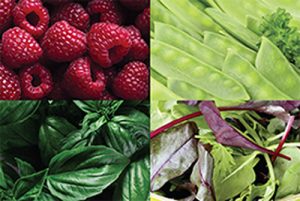CDC reports that as of September 13, 2017 they have been notified of 988 laboratory-confirmed cases of cyclosporiasis in persons who became ill in 2017. This number includes persons who reported international travel as well as persons who did not report travel. The reports have come from 40 states.
- At least 553 (56%) of these persons did not report international travel (i.e., likely were infected in the United States) and became ill on or after May 1, 2017 (a date after which cases tend to increase each year). These 553 persons were from the following 36 states: Arizona (1), California (10), Colorado (6), Connecticut (23), Florida (68), Georgia (10), Illinois (17), Indiana (4), Iowa (14), Kansas (2), Louisiana (7), Maryland (12), Massachusetts (13), Michigan (3), Minnesota (11), Mississippi (1), Missouri (13), Montana (2), Nebraska (5), New Hampshire (4), New Jersey (19), New Mexico (1), New York (excluding NYC) (15), New York City (30), North Carolina (45), Ohio (16), Pennsylvania (2), Rhode Island (2), South Carolina (7), South Dakota (4), Tennessee (3), Texas (163), Utah (1), Virginia (7), Washington (1), West Virginia (2), and Wisconsin (9).
- At this time, no specific vehicle of interest has been identified, and investigations to identify a potential source (or sources) of infection are ongoing. It is too early to say whether cases of Cyclosporainfection in different states are related to each other or to the same food item(s).
Previous U.S. outbreaks of cyclosporiasis have been linked to various types of imported fresh produce (e.g., basil, cilantro, mesclun lettuce, raspberries, snow peas). Consumers should continue to enjoy the health benefits of eating fresh fruits and vegetables as part of a well-balanced diet.

